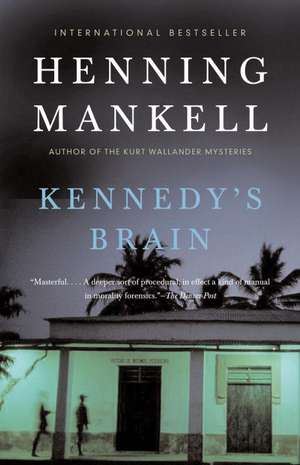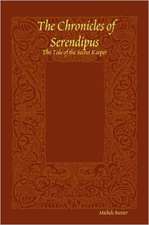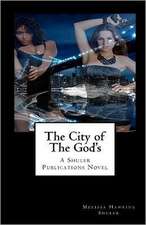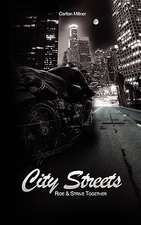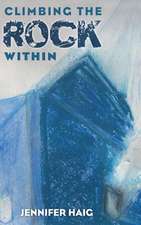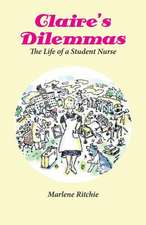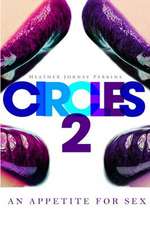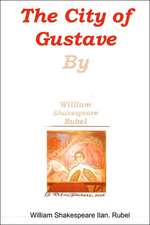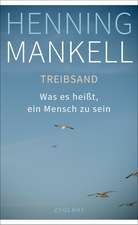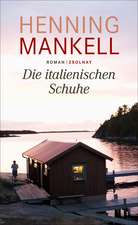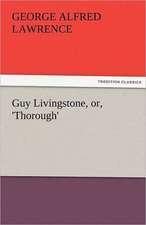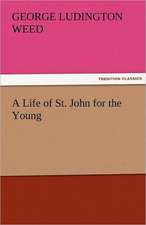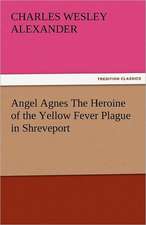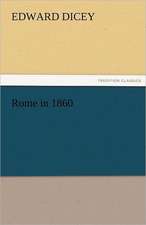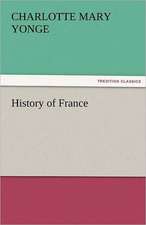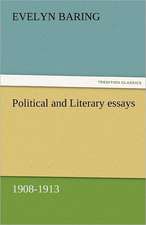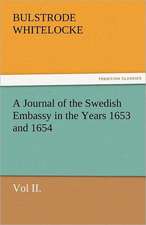Kennedy's Brain
Autor Henning Mankell Traducere de Laurie Thompsonen Limba Engleză Paperback – 31 oct 2008
When Louise Cantor finds her twenty-eight year old son dead in his apartment, everything indicates it was a suicide. Louise, however, refuses to accept this, and with nothing more than few suspicions and a mother's intuition, she and her ex-husband set out to find what happened. What they discover is a dark underworld of people exploiting the victims of the AIDS epidemic: corrupt businessmen dealing infected blood, suspicious researchers carrying out dangerous tests, and lecherous drug dealers peddling black market medicine. Their investigation takes them across three continents, and leads them into some mighty financial institutions and highest corridors of power, where suddenly their own lives are at stake.
Preț: 86.98 lei
Nou
Puncte Express: 130
Preț estimativ în valută:
16.65€ • 17.33$ • 14.07£
16.65€ • 17.33$ • 14.07£
Carte indisponibilă temporar
Doresc să fiu notificat când acest titlu va fi disponibil:
Se trimite...
Preluare comenzi: 021 569.72.76
Specificații
ISBN-13: 9780307385918
ISBN-10: 0307385914
Pagini: 328
Dimensiuni: 130 x 201 x 20 mm
Greutate: 0.25 kg
Editura: Vintage Books USA
ISBN-10: 0307385914
Pagini: 328
Dimensiuni: 130 x 201 x 20 mm
Greutate: 0.25 kg
Editura: Vintage Books USA
Notă biografică
Internationally bestselling novelist and playwright Henning Mankell has received the German Tolerance Prize and the U.K.'s Golden Dagger Award and has been nominated for a Los Angeles Times Book Prize three times. His Kurt Wallander mysteries have been published in thirty-three countries and consistently top the bestseller lists in Europe. He divides his time between Sweden and Maputo, Mozambique, where he has worked as the director of Teatro Avenida since 1985.
Extras
chapter 1
The catastrophe happened in the autumn. She had no idea what was coming, no warning. No shadow was cast; it struck without a sound.
It was like being waylaid in a dark alley. But the fact was that it forced her away from her ruins, into a reality that she had never really concerned herself with. She was hurled with immense force into a world where the excavation of Greek Bronze Age graves was irrelevant.
She had been living deep down in her dusty trenches, or hunched over shattered vases that she was trying to piece together. She had loved her ruins, and failed to notice that the world around her was starting to collapse. She was an archaeologist forced to leave the past and stand next to a grave she had never imagined possible.
There were no portents. The tragedy had been robbed of its voice. It was unable to shout out a warning to her.
The evening before Louise Cantor travelled to Sweden to take part in a conference on current archaeological excavations of Bronze Age graves, she stood on a ceramic fragment in the bathroom and suffered a deep wound in her left foot. It bled copiously over the floor, making her feel sick. The shard dated from the fifth century BC.
She was in Argolis on Peloponnisos, 137 kilometres outside Athens, it was September and the year's excavations were coming to a close. She could already feel a chill in the wind that presaged the coming winter. The dry heat with its scent of rosemary and thyme was beginning to fade.
She stemmed the flow of blood and applied a plaster. A memory came storming into her mind.
A rusty nail that had gone right through her foot - not the one she had cut now, but the other one, her right foot. She must have been five or six years old. The brown nail had penetrated her heel, forced its way through skin and flesh and impaled her as if on a pole. She had howled with pain, and thought that she was undergoing the same kind of torture experienced by the man crucified on the cross at the front of the church where she sometimes played her lonely horror games.
We are pierced over and over again by these barbs, she thought as she wiped the blood off the cracked floor tiles. A woman spends all her life in the proximity of these sharp edges out to penetrate what she is trying to protect.
She limped to the part of the house that doubled as her workplace and bedroom. In one corner was a creaky rocking chair and a CD player. She had been given the CD player by old Leandros, the caretaker. Leandros had been around as a poverty-stricken but curious child when the Swedish excavations at Argolis began in the 1930s. Nowadays he spent his nights fast asleep while on caretaking duty at the Mastos hill. But everybody on the project supported him. Leandros was an essential cog in the wheel. Without him, all future grants to enable the continuation of the excavations would be under threat. Exercising the prerogative of old age, Leandros had become a toothless and often noticeably filthy guardian angel.
Louise Cantor sat down on the rocking chair and examined her wounded foot. She smiled at the thought of Leandros. Most Swedish archaeologists she knew were aggressively impious, and refused to accept various authorities as anything other than obstacles in the way of the continued dig. A few gods who had lost all significance a very long time ago could hardly affect the distant Swedish authorities when it came to approving or rejecting expenditure on archaeological ventures. Swedish bureaucracy was a sort of tunnel world with entrances and exits, but nothing in between; and the decisions that eventually found their way to the sweltering Greek burial vaults were often extremely difficult to understand.
An archaeologist always needs to be doubly blessed, she thought. We never know if we are going to find what we are looking for, or if we are looking for what we want to find. If we get it right, we are greatly blessed. But at the same time we never know if we are going to be given permission and sufficient money to dig deeper into the marvellous ruined worlds, or if the milch cow's udders will suddenly dry up. This was Louise's contribution to archaeological jargon: to describe the funding authorities as milch cows with capricious udders.
She looked at the clock. It was a quarter past eight, an hour earlier in Sweden. She reached for the telephone and dialled the number of her son in Stockholm.
She could hear the ringing, but nobody answered. When the answering machine cut in, she listened to his voice with her eyes closed. It was a voice that calmed her down. 'Det här är en telefonsvarare och du vet vad du ska göra. I'll repeat that in English. This is an answering machine and you know what to do. Henrik.'
She left her message. 'Don't forget that I'm coming home. I shall be in Visby for two days, discussing the Bronze Age. Then I'll go to Stockholm. I love you. See you soon. I might ring you later. If not, I'll be in touch from Visby.' She fetched the ceramic fragment that had injured her foot. One of her closest colleagues, a very keen female student from Lund, had found it. It was a shard like millions of others, a piece of Attic pottery that she guessed came from a pot or jar made just before the colour red started to dominate.
She enjoyed piecing together ceramic fragments, imagining the original object that she would probably be unable to reconstruct. She would give this one to Henrik as a present. She put it on top of her packed suitcase that was waiting for the lid to be closed.
As usual, she was feeling restless before leaving. She was finding it hard to curb her increasing impatience, and decided to change her plans for the evening. Until she had cut her foot, she had intended to spend a few hours on the paper she was writing about Attic pottery. Instead, she turned off her desk lamp, switched on the CD player and sank back in the rocking chair.
As usual when she was listening to music, the dogs started barking in the darkness outside.They belonged to her nearest neighbour,Mitsos, who was part-owner of an excavator. He was also the owner of the little house she rented. Most of her colleagues lived in Argolis, but she had preferred to stay close to the dig.
She had almost dozed off when she sat up with a start. It had struck her that she did not want to spend the night on her own. She turned down the volume and phoned Vassilis. He had promised to take her to the airport in Athens the next morning. As the Lufthansa flight to Frankfurt left very early, they would need to set off at five o'clock. She'd rather have company when she knew she would not be able to sleep soundly anyway.
She looked at the clock and realised that Vassilis was probably still at the office. One of their rare quarrels had concerned his job. She thought she had been a bit insensitive in saying that the accounting profession must be the most combustible in existence. She could still recall her exact words, which sounded much nastier than she had intended.
'The most combustible profession there is. So dry and lifeless that it could burst into flames at any minute.'
He had been surprised, perhaps saddened, but most of all angry. At that moment it dawned on her there was more to their relationship than just sex. She enjoyed his company despite the fact - or because of it - that he had no interest whatsoever in archaeology. She had been afraid that he would be so offended that he would break off their affair on the spot. But she had managed to convince him that she was only joking.
'The world is driven by cash books,' she had said. 'Cash books are the liturgy of our time, and accountants are our high priests.'
Louise dialled the number. Engaged. She rocked gently back and forth in the chair. She had met Vassilis by chance. But aren't all important meetings in this life chance happenings?
Her first love, the ginger-haired man who hunted bears, built houses and could sink into long periods of depression, had once given her a lift when she'd been to visit a friend in Hede and missed the train back to Sveg. Emil had stopped his old lorry for her. She was seventeen at the time and still not worldly wise. He drove her home. That was in the late autumn of 1967. They were together for six months before she could summon up the strength to escape from his bear-like embrace. She then moved from Sveg to Östersund, started at college and one day decided to become an archaeologist. There were other men at university in Uppsala, and she simply happened to bump into them in various circumstances. Aron, the man she married and the father of Henrik, the reason why she changed her name from Lindblom to Cantor, was somebody she happened to sit next to on a flight between London and Edinburgh. She had received a scholarship from Uppsala University to attend a conference on classical archaeology, Aron was on his way to Scotland to go fishing, and up in the air, high above the clouds, they had fallen into conversation.
She forced herself not to think about Aron, not wanting to grow angry, and rang the number again. Still engaged.
She always used to compare the men she met after her divorce - it was not a conscious process, but she had a ranking scale deep down in her mind on which Aron was registered as the norm, and everybody else she went with was too short or too tall, too boring, too untalented. In other words, Aron always won. She still had not met anybody who could match his memory. That could make her both disconsolate and furious; it seemed that he still dictated the course of her life even though it was nothing to do with him any more. He had betrayed her, he had deceived her, and when the truth started to come out he simply disappeared - just as a spy about to be exposed flees to his controller. It had come as a terrible shock to her: she had no idea that he had been seeing other women. To make matters worse, one of them was a close friend of hers, a fellow archaeologist who had devoted her life to excavations on Thassos, in search of a Dionysos temple. Henrik was still very young at the time. She had taken a temporary post as a university lecturer while trying to survive what had happened and patching together her wrecked life.
Aron had shattered her like a sudden volcanic eruption can shatter a settlement, a person or a vase. When she sat with her ceramic fragments, trying to envisage the whole that she would never be able to reconstruct, she often thought of her own predicament. Aron had not only smashed her to pieces, he had also hidden some of the fragments in order to make it more difficult for her to recreate her identity, as a human being, a woman and an archaeologist.
Following Aron's disappearance she had found a letter a mere three or four lines long, carelessly written, announcing that their marriage was at an end, he simply couldn't go on any longer, he begged her pardon and he hoped that she wouldn't turn their son against him.
Then she heard nothing more from him for seven months. In the end she received a letter posted in Venice. She could tell from his handwriting that he had been drunk at the time, one of the staggering Aron benders he not infrequently indulged in, a constant state of intoxication dotted with peaks and troughs that could last for over a week. At last he had written to her, his tone was maudlin and oozing with self-pity, and he wondered if she could consider having him back. It was only then, as she sat there with the wine-stained letter in her hand, that it dawned on her that her marriage was over. She both wanted and didn't want to have him back, but she didn't dare risk it because she knew that he could well destroy her life again. A human being can be wrecked and then resurrected and restored once in this life, she thought - but not twice. That would be too much. So she replied and informed Aron that their marriage was finished. Henrik existed and lived with his mother, it was up to him and his father to work out what sort of a relationship they wanted to have: she would not intervene.
Almost a year passed before he was in touch again. This time it was by means of a dodgy telephone connection from Newfoundland, where he and several like-minded computer experts had assembled to form a network that was reminiscent of a sect. He explained somewhat vaguely that they were investigating the future of archives, now that all human experience could be reduced to a combination of ones and zeros. Microfilm and underground libraries were no longer of significance for the recording of human experience. Now it was computers that would guarantee that mankind living at a specific time would not leave behind a vacuum. But was there any guarantee that in the magical demiworld in which he was living, computers would not be able to create their own experiences and record them as well? The line was poor and she couldn't understand a lot of what he said: but at least he was not drunk and self-pitying.
He wanted her to send him a lithograph of a hawk pouncing on a dove, a picture they had bought shortly after they were married, when they happened to visit an art gallery. A week or so later, she sent him the picture. It was about then she realised that he had started to contact his son again, albeit secretly.
Aron continued to appear on the horizon. She sometimes wondered if she would ever be able to erase his features and discard the assessment table she used to measure other men with - and which sooner or later led to their being condemned, rejected.
The catastrophe happened in the autumn. She had no idea what was coming, no warning. No shadow was cast; it struck without a sound.
It was like being waylaid in a dark alley. But the fact was that it forced her away from her ruins, into a reality that she had never really concerned herself with. She was hurled with immense force into a world where the excavation of Greek Bronze Age graves was irrelevant.
She had been living deep down in her dusty trenches, or hunched over shattered vases that she was trying to piece together. She had loved her ruins, and failed to notice that the world around her was starting to collapse. She was an archaeologist forced to leave the past and stand next to a grave she had never imagined possible.
There were no portents. The tragedy had been robbed of its voice. It was unable to shout out a warning to her.
The evening before Louise Cantor travelled to Sweden to take part in a conference on current archaeological excavations of Bronze Age graves, she stood on a ceramic fragment in the bathroom and suffered a deep wound in her left foot. It bled copiously over the floor, making her feel sick. The shard dated from the fifth century BC.
She was in Argolis on Peloponnisos, 137 kilometres outside Athens, it was September and the year's excavations were coming to a close. She could already feel a chill in the wind that presaged the coming winter. The dry heat with its scent of rosemary and thyme was beginning to fade.
She stemmed the flow of blood and applied a plaster. A memory came storming into her mind.
A rusty nail that had gone right through her foot - not the one she had cut now, but the other one, her right foot. She must have been five or six years old. The brown nail had penetrated her heel, forced its way through skin and flesh and impaled her as if on a pole. She had howled with pain, and thought that she was undergoing the same kind of torture experienced by the man crucified on the cross at the front of the church where she sometimes played her lonely horror games.
We are pierced over and over again by these barbs, she thought as she wiped the blood off the cracked floor tiles. A woman spends all her life in the proximity of these sharp edges out to penetrate what she is trying to protect.
She limped to the part of the house that doubled as her workplace and bedroom. In one corner was a creaky rocking chair and a CD player. She had been given the CD player by old Leandros, the caretaker. Leandros had been around as a poverty-stricken but curious child when the Swedish excavations at Argolis began in the 1930s. Nowadays he spent his nights fast asleep while on caretaking duty at the Mastos hill. But everybody on the project supported him. Leandros was an essential cog in the wheel. Without him, all future grants to enable the continuation of the excavations would be under threat. Exercising the prerogative of old age, Leandros had become a toothless and often noticeably filthy guardian angel.
Louise Cantor sat down on the rocking chair and examined her wounded foot. She smiled at the thought of Leandros. Most Swedish archaeologists she knew were aggressively impious, and refused to accept various authorities as anything other than obstacles in the way of the continued dig. A few gods who had lost all significance a very long time ago could hardly affect the distant Swedish authorities when it came to approving or rejecting expenditure on archaeological ventures. Swedish bureaucracy was a sort of tunnel world with entrances and exits, but nothing in between; and the decisions that eventually found their way to the sweltering Greek burial vaults were often extremely difficult to understand.
An archaeologist always needs to be doubly blessed, she thought. We never know if we are going to find what we are looking for, or if we are looking for what we want to find. If we get it right, we are greatly blessed. But at the same time we never know if we are going to be given permission and sufficient money to dig deeper into the marvellous ruined worlds, or if the milch cow's udders will suddenly dry up. This was Louise's contribution to archaeological jargon: to describe the funding authorities as milch cows with capricious udders.
She looked at the clock. It was a quarter past eight, an hour earlier in Sweden. She reached for the telephone and dialled the number of her son in Stockholm.
She could hear the ringing, but nobody answered. When the answering machine cut in, she listened to his voice with her eyes closed. It was a voice that calmed her down. 'Det här är en telefonsvarare och du vet vad du ska göra. I'll repeat that in English. This is an answering machine and you know what to do. Henrik.'
She left her message. 'Don't forget that I'm coming home. I shall be in Visby for two days, discussing the Bronze Age. Then I'll go to Stockholm. I love you. See you soon. I might ring you later. If not, I'll be in touch from Visby.' She fetched the ceramic fragment that had injured her foot. One of her closest colleagues, a very keen female student from Lund, had found it. It was a shard like millions of others, a piece of Attic pottery that she guessed came from a pot or jar made just before the colour red started to dominate.
She enjoyed piecing together ceramic fragments, imagining the original object that she would probably be unable to reconstruct. She would give this one to Henrik as a present. She put it on top of her packed suitcase that was waiting for the lid to be closed.
As usual, she was feeling restless before leaving. She was finding it hard to curb her increasing impatience, and decided to change her plans for the evening. Until she had cut her foot, she had intended to spend a few hours on the paper she was writing about Attic pottery. Instead, she turned off her desk lamp, switched on the CD player and sank back in the rocking chair.
As usual when she was listening to music, the dogs started barking in the darkness outside.They belonged to her nearest neighbour,Mitsos, who was part-owner of an excavator. He was also the owner of the little house she rented. Most of her colleagues lived in Argolis, but she had preferred to stay close to the dig.
She had almost dozed off when she sat up with a start. It had struck her that she did not want to spend the night on her own. She turned down the volume and phoned Vassilis. He had promised to take her to the airport in Athens the next morning. As the Lufthansa flight to Frankfurt left very early, they would need to set off at five o'clock. She'd rather have company when she knew she would not be able to sleep soundly anyway.
She looked at the clock and realised that Vassilis was probably still at the office. One of their rare quarrels had concerned his job. She thought she had been a bit insensitive in saying that the accounting profession must be the most combustible in existence. She could still recall her exact words, which sounded much nastier than she had intended.
'The most combustible profession there is. So dry and lifeless that it could burst into flames at any minute.'
He had been surprised, perhaps saddened, but most of all angry. At that moment it dawned on her there was more to their relationship than just sex. She enjoyed his company despite the fact - or because of it - that he had no interest whatsoever in archaeology. She had been afraid that he would be so offended that he would break off their affair on the spot. But she had managed to convince him that she was only joking.
'The world is driven by cash books,' she had said. 'Cash books are the liturgy of our time, and accountants are our high priests.'
Louise dialled the number. Engaged. She rocked gently back and forth in the chair. She had met Vassilis by chance. But aren't all important meetings in this life chance happenings?
Her first love, the ginger-haired man who hunted bears, built houses and could sink into long periods of depression, had once given her a lift when she'd been to visit a friend in Hede and missed the train back to Sveg. Emil had stopped his old lorry for her. She was seventeen at the time and still not worldly wise. He drove her home. That was in the late autumn of 1967. They were together for six months before she could summon up the strength to escape from his bear-like embrace. She then moved from Sveg to Östersund, started at college and one day decided to become an archaeologist. There were other men at university in Uppsala, and she simply happened to bump into them in various circumstances. Aron, the man she married and the father of Henrik, the reason why she changed her name from Lindblom to Cantor, was somebody she happened to sit next to on a flight between London and Edinburgh. She had received a scholarship from Uppsala University to attend a conference on classical archaeology, Aron was on his way to Scotland to go fishing, and up in the air, high above the clouds, they had fallen into conversation.
She forced herself not to think about Aron, not wanting to grow angry, and rang the number again. Still engaged.
She always used to compare the men she met after her divorce - it was not a conscious process, but she had a ranking scale deep down in her mind on which Aron was registered as the norm, and everybody else she went with was too short or too tall, too boring, too untalented. In other words, Aron always won. She still had not met anybody who could match his memory. That could make her both disconsolate and furious; it seemed that he still dictated the course of her life even though it was nothing to do with him any more. He had betrayed her, he had deceived her, and when the truth started to come out he simply disappeared - just as a spy about to be exposed flees to his controller. It had come as a terrible shock to her: she had no idea that he had been seeing other women. To make matters worse, one of them was a close friend of hers, a fellow archaeologist who had devoted her life to excavations on Thassos, in search of a Dionysos temple. Henrik was still very young at the time. She had taken a temporary post as a university lecturer while trying to survive what had happened and patching together her wrecked life.
Aron had shattered her like a sudden volcanic eruption can shatter a settlement, a person or a vase. When she sat with her ceramic fragments, trying to envisage the whole that she would never be able to reconstruct, she often thought of her own predicament. Aron had not only smashed her to pieces, he had also hidden some of the fragments in order to make it more difficult for her to recreate her identity, as a human being, a woman and an archaeologist.
Following Aron's disappearance she had found a letter a mere three or four lines long, carelessly written, announcing that their marriage was at an end, he simply couldn't go on any longer, he begged her pardon and he hoped that she wouldn't turn their son against him.
Then she heard nothing more from him for seven months. In the end she received a letter posted in Venice. She could tell from his handwriting that he had been drunk at the time, one of the staggering Aron benders he not infrequently indulged in, a constant state of intoxication dotted with peaks and troughs that could last for over a week. At last he had written to her, his tone was maudlin and oozing with self-pity, and he wondered if she could consider having him back. It was only then, as she sat there with the wine-stained letter in her hand, that it dawned on her that her marriage was over. She both wanted and didn't want to have him back, but she didn't dare risk it because she knew that he could well destroy her life again. A human being can be wrecked and then resurrected and restored once in this life, she thought - but not twice. That would be too much. So she replied and informed Aron that their marriage was finished. Henrik existed and lived with his mother, it was up to him and his father to work out what sort of a relationship they wanted to have: she would not intervene.
Almost a year passed before he was in touch again. This time it was by means of a dodgy telephone connection from Newfoundland, where he and several like-minded computer experts had assembled to form a network that was reminiscent of a sect. He explained somewhat vaguely that they were investigating the future of archives, now that all human experience could be reduced to a combination of ones and zeros. Microfilm and underground libraries were no longer of significance for the recording of human experience. Now it was computers that would guarantee that mankind living at a specific time would not leave behind a vacuum. But was there any guarantee that in the magical demiworld in which he was living, computers would not be able to create their own experiences and record them as well? The line was poor and she couldn't understand a lot of what he said: but at least he was not drunk and self-pitying.
He wanted her to send him a lithograph of a hawk pouncing on a dove, a picture they had bought shortly after they were married, when they happened to visit an art gallery. A week or so later, she sent him the picture. It was about then she realised that he had started to contact his son again, albeit secretly.
Aron continued to appear on the horizon. She sometimes wondered if she would ever be able to erase his features and discard the assessment table she used to measure other men with - and which sooner or later led to their being condemned, rejected.
Recenzii
"Masterful…. A deeper sort of procedural, in effect a kind of manual in morality forensics."
—The Denver Post
“A top-notch thriller…has all Mankell's trademarks: fine characters, a complex plot, a moody, expressive style.”
—The Globe & Mail
“A cautionary tale, an exploration of family relationships, a provocative portrayal of grief and an indictment of worldwide ignorance.” —Bookreporter
—The Denver Post
“A top-notch thriller…has all Mankell's trademarks: fine characters, a complex plot, a moody, expressive style.”
—The Globe & Mail
“A cautionary tale, an exploration of family relationships, a provocative portrayal of grief and an indictment of worldwide ignorance.” —Bookreporter
Descriere
When Louise Cantor finds her 28-year-old son dead in his apartment, everything indicates it was a suicide. Louise, however, refuses to accept this. She and her ex-husband set out to find what happened, and soon discover a dark underworld where suddenly their own lives are at stake.
